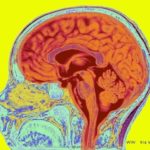Among children and adolescents, cognitive-behavioral therapy (CBT) has become the hallmark treatment path in the United States.
Despite its effectiveness in treating nearly half of children with an anxiety disorder, between 30 to 50 percent do not benefit from such treatment. Therefore, a group of researchers turned to attention treatment therapy and uncovered promising results.
According to the study, published in the Journal of the American Academy of Child and Adolescent Psychiatry, computer-based attention training may be effective for treatment-resistant anxiety in children and adolescents.
The group probed 64 participants, aged 7 to 16, examining if each met the criteria for an anxiety disorder after undergoing cognitive behavioral therapy. Thereafter, examining the participants again after four weeks of attention training.
The participants underwent either forms of attention training: the first-attention bias modification treatment-trained attention toward neutral stimuli and away from threatening stimuli; the second-attention control training-trained attention to neutral and threatening stimuli equally.
After the four weeks of attention training ended, researchers determined that approximately half of the participants had no longer met the citeria for an anxiety disorder.
“This report presents findings from an efficacy trial of attention bias modification treatment (ABMT) as an augment for this population compared with attention control training (ACT),” Jeremy Pettit, co-author of the study, stated.
“This is the first study to show anxiety can be decreased in youth who did not respond to cognitive-behavior therapy, and that the anxiety-decreasing effect is found using these 2 attention training contingency schedules,” Pettit explained.
“These findings and increases in attention control in the 2 arms raise intriguing questions about mechanisms of decreasing anxiety in treatment-resistant youth with attention training that require further research.”


